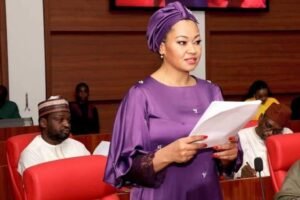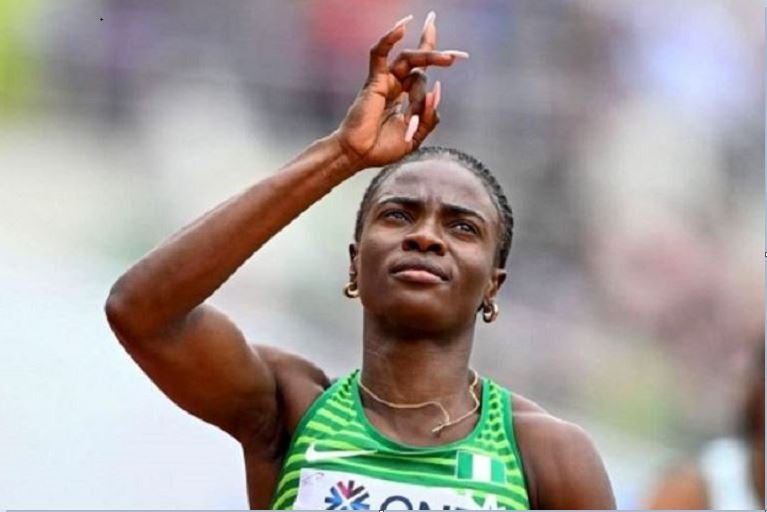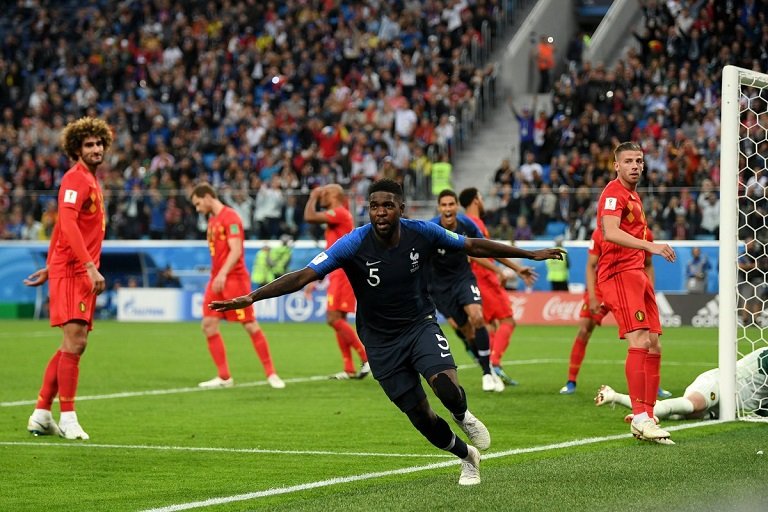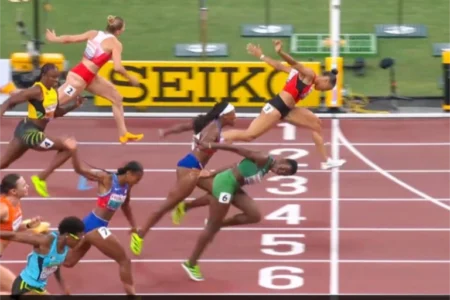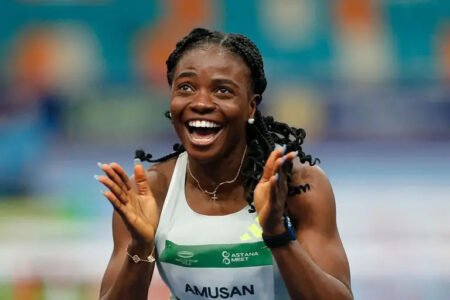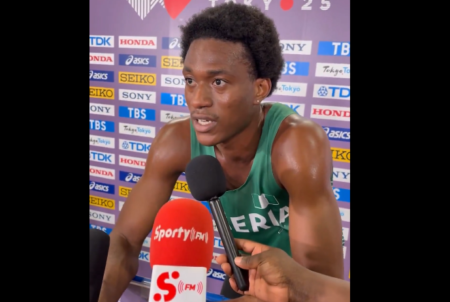Shehu Dikko, the chairman of the National Sports Commission (NSC), has dismissed claims by Tobi Amusan that the sports kits supplied to Nigerian athletes at the ongoing international championships were inferior.
Chronicle NG reports that former world champion and women’s 100m hurdles record holder, Amusan, had criticized Nigerian authorities over the kits provided for herself and other athletes representing the country at the 2025 World Championships in Tokyo.
With just a few hours until the championships began, Amusan expressed her worries about what she saw as unprofessionalism and a lack of coordination within the Athletics Federation of Nigeria.
In a Snapchat video, Amusan stated that, unlike other countries, which offer their contingents with kits in luggage, the Nigerian government gives them their own kits in nylon bags containing little or nothing significant.
She expressed concern about the quality of the competition gear, pointing out that despite officials collecting shoe sizes, no shoes were given in the kit bags.
The AFN, on the other hand, denied Amusan’s claims that competitors were given low-quality kits for the championships, stating that the hurdler was given the full outfit and that she and her teammates received preferential care in travel arrangements.
In an interview with PUNCH, AFN President Tonobok Okowa denied Amusan’s allegations, emphasizing that the federation had provided the full complement of kits in accordance with the agreement with HiRacer, a global sportswear company that sponsors athletes from 20 countries at the Tokyo championships.
Dikko responded in an interview with Channels Television on Monday, saying the kits obtained through HiRacer were of the same quality as those worn by athletes from other countries, emphasizing that the dispute was unwarranted.
“The kits are not inferior. I thought the AFN should have been praised for quickly getting the transaction with HiRacer,” he said.
The sports administrator indicated that the outcry may have been caused by the packing and distribution strategy rather than the item’s quality.
“If you look at other countries, they are also using similar kits from HiRacer. It is just probably about the packaging because it was not put in a box or bought in bulk like others are doing,” he noted.
Dikko mentioned that Amusan, who had raised concerns about the kits, said her grievance was likely tied to presentation and delivery.
“Probably she has an issue with the packaging, the quantity, yes. But the Athletics Federation of Nigeria has already explained that they are providing the kits in bits and pieces, so it shouldn’t really be an issue,” he stated.
He also stated that the procurement arrangement with HiRacer included bonuses and incentives for athletes who excel in their events.
He added, “The athletes have been using the same kits, and those kits are comparable in quality to what any other athlete is using. That is the situation with the kits.”
Nigeria has a history of controversy regarding the provision of uniforms at big international competitions. Several athletes complained about inadequate preparation and equipment for the Tokyo 2020 Olympics.
In 2021, the Athletics Federation of Nigeria was embroiled in a sponsorship dispute that raised concerns regarding the delivery of competition gear.
Ahead of the 2022 Commonwealth Games, athletes expressed concern over the late arrival of uniforms and training equipment, which drew further public criticism of sports administration.
Amusan, who won Nigeria’s first World Championships gold medal in 2022 and is widely regarded as the country’s most prominent track star, has previously spoken out regarding athlete welfare and standards.
Her comments on the current circumstances revived questions over whether Nigeria has learned from past mistakes.
The NSC’s defense comes as calls for greater transparency in sports management rise, with athletes and others pressing administrators to prioritize preparation and welfare ahead of major competitions.


